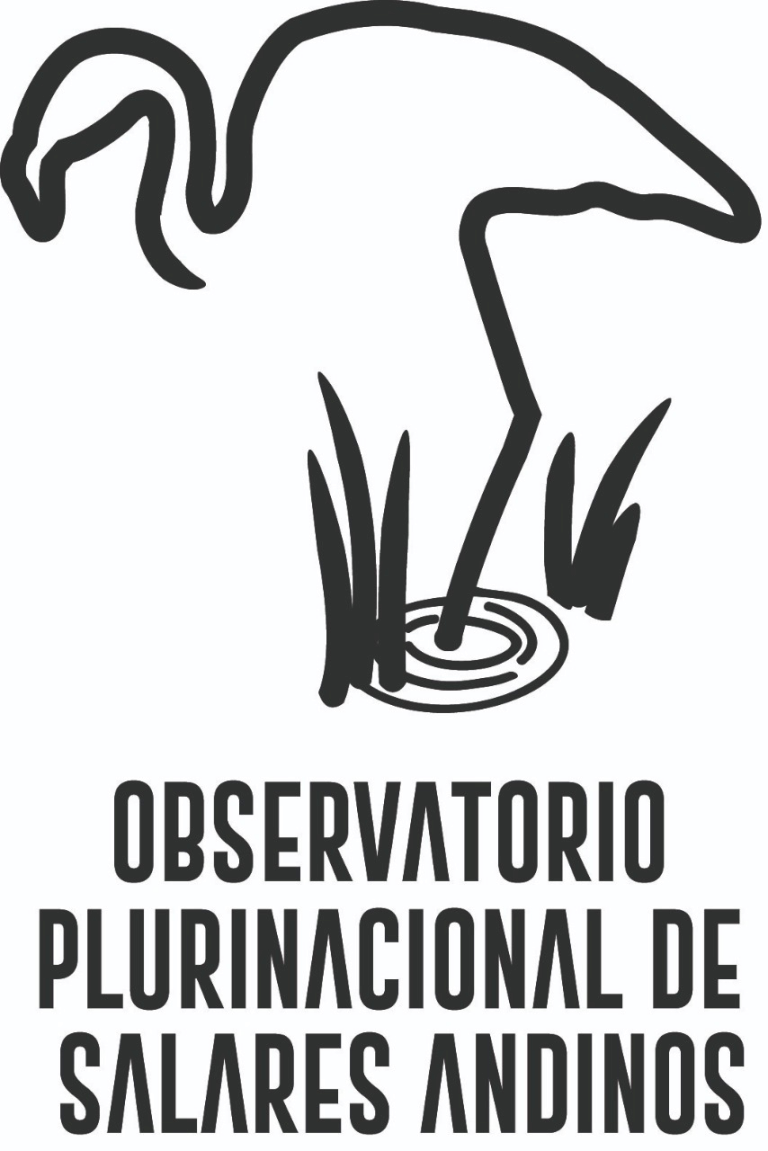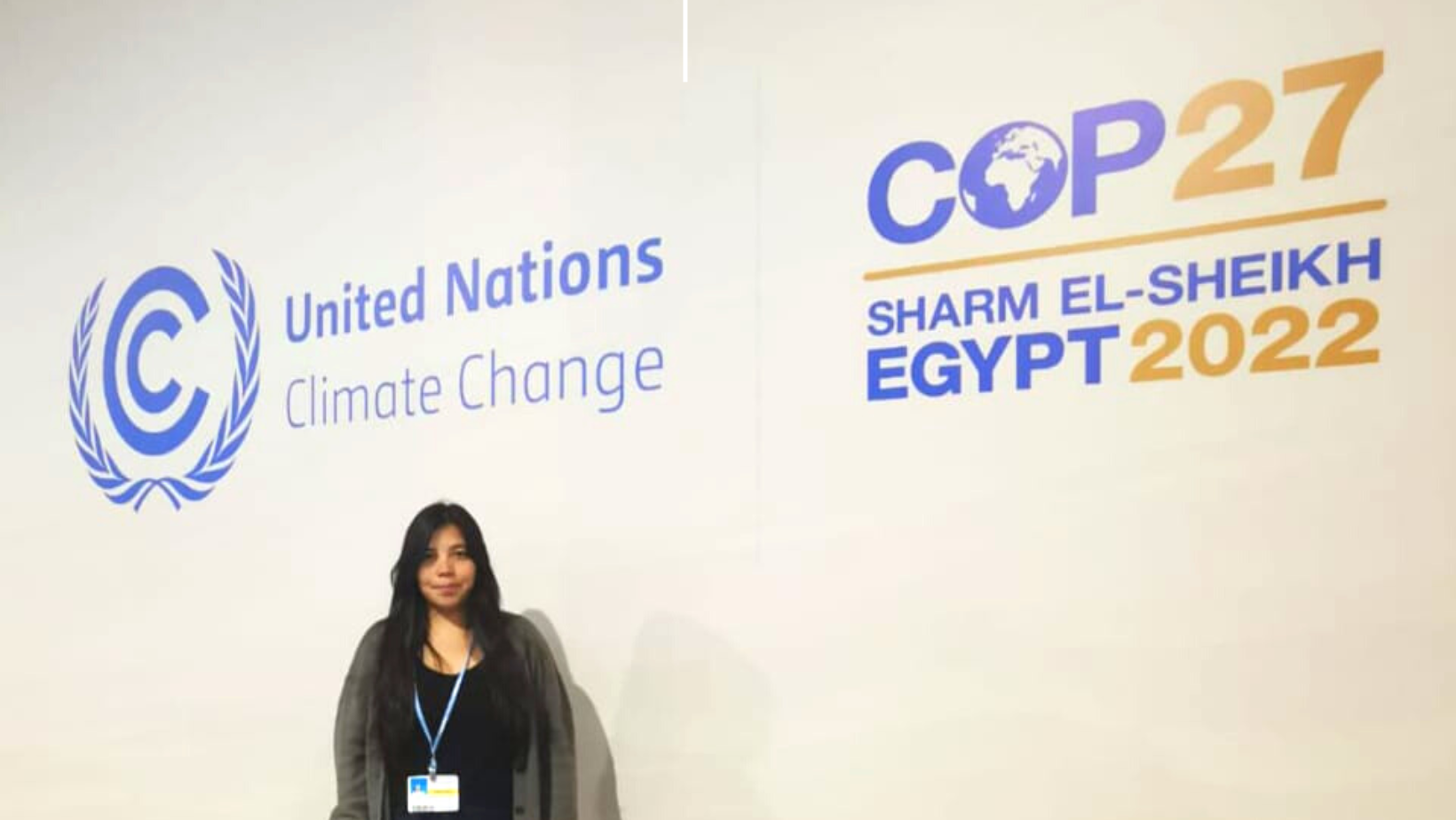In the Indigenous Peoples Pavilion, the 26-year-old will speak about how the so-called «white gold» industry affects community life and biodiversity in the Andean salt flats and wetlands, violating the right to free, prior and informed consultation of the first nations, and making it impossible to develop subsistence economies, such as agriculture or tourism.
Lesley Muñoz Rivera (26), member of the Colla Indigenous Community of Copiapó in Chile and of the Plurinational Observatory of Andean Salt Flats (OPSAL in spanish) will participate in a new version of the Conference of the Parties on Climate Change (COP27) taking place in Sharm El Sheikh, Egypt. She will speak about the impacts of lithium mining on the communities living near the salt flats and wetlands of the Atacama Desert.
«I set out to expose how unfair the so-called energy transition is for communities. So-called green energies are not the answer to the great problem of climate change, and to find solutions they must begin by considering the indigenous peoples of the threatened territories,» says Lesley, who will speak about the social, economic and cultural impacts experienced in the territories where mining projects are inserted, highly polluting and altering the course and availability of water needed by communities for biodiversity protection but also for daily life and their subsistence economies in a context of intense droughts.
The transition towards the implementation of energies that reduce greenhouse gases (mitigation) to reduce or lessen the impacts of the effects of climate change is one of the main issues being addressed at this COP27. In this context, the technology and electromobility industries – which require the extraction of lithium as a base mineral for the manufacture of batteries, for example – have emerged as one of the main solutions for the mitigation agenda.
According to the latest data from the geological service Sernageomin, Chile was the country with the second largest lithium production worldwide in 2020 with the extraction of 124,600 tons (26.5% of the world total), located after Australia (48%) and before China (17%). Meanwhile, in the Puna de Atacama, an ecoregion shared by Chile, Bolivia and Argentina, 65% of the reserves of the «white gold» are concentrated.
«I am concerned that the authorities in Chile continue to promote its extraction from the salt flats without taking into account the indigenous communities. Because of the manufacture of electric cars that are mostly consumed in Europe, and luxuries that are not necessary to live, they are promoting the destruction and drying of wetlands and salt flats. A just transition must not sacrifice the life of any indigenous community or person on the planet«, adds the young woman, who will speak along with a delegation of other five representatives of indigenous communities supported by Cultural Survival.

Lesley will participate in three instances. The first, on Thursday, November 10 at the side event «Who Pays: Climate Finance and the Real Cost of a Just Energy Transition«. This will be followed by the event «Securing Indigenous Rights in the Transition to a Green Economy» on Saturday, November 12, and «Voices of Indigenous Rights Defenders: Cases of Criminalization around the World» on Thursday, November 17, both at the Indigenous Peoples Pavilion.
From her participation in COP27, the representative of the Colla community of Copiapó, located in the Atacama Region (Chile), says that her wish is to «correct this discourse that lithium is the solution because, in reality, it only generates answers to the crisis as experienced in the global north«. «I wish I could also reach the people who invest in these strategic minerals and clean energies to make them see that their solutions increase the problems of the global south, they are polluting and destroying us because of their little empathy to see this macro problem,» she adds.
To learn more about the conflicts surrounding the extraction of lithium and the installation of its mining industry in Bolivia, Chile and Argentina, we invite you to read «Salar de Maricunga in the Crosshairs of Extractivism» written by Lesley Muñoz in the book «Salares Andinos – Ecología de Saberes por la Protección de Nuestros Salares y Humedales» (Andean Salt Flats – Ecology of Knowledge for the Protection of Our Salt Flats and Wetlands).
OPSAL Twitter: https://twitter.com/OPSAL_

